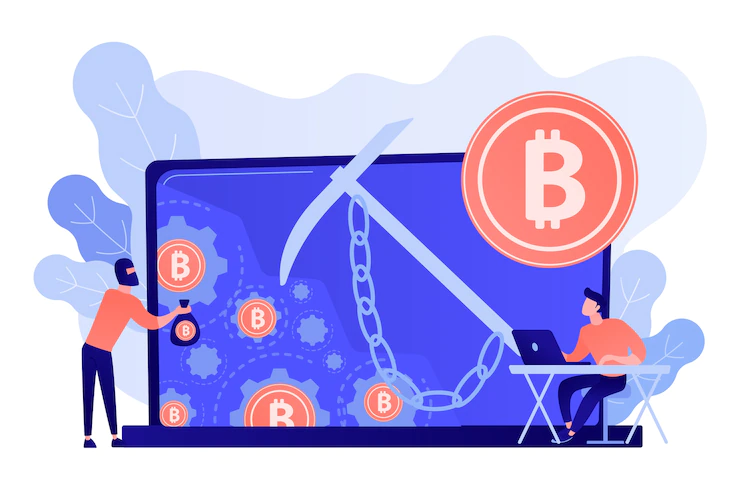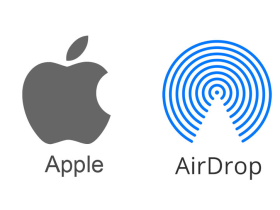A Bitcoin mining pool is a group of miners who combine their computational resources over a network to mine Bitcoin, the world’s first and most popular cryptocurrency. By pooling their resources, miners are able to increase their chances of successfully mining a block and earning rewards.
Mining pools were first introduced to the world of Bitcoin, and have since become a popular way for miners to increase their chances of earning cryptocurrency rewards. In the early days of Bitcoin mining, individuals were able to compete with each other and earn rewards on their own. However, as mining became more competitive and the difficulty of mining increased, it became more difficult for individual miners to earn rewards.
This is where mining pools come in. By joining a mining pool, individual miners are able to combine their computational resources and share the rewards proportionally based on their contribution to the pool. This means that even if an individual miner is only able to contribute a small amount of computational power to the pool, they can still earn a portion of the rewards earned by the pool as a whole.
There are many different Bitcoin mining pools to choose from, and each one has its own unique features and benefits. Some popular Bitcoin mining pools include F2Pool, Antpool, and SlushPool.
When choosing a mining pool, it’s important to consider factors such as the pool’s fees, the minimum amount of Bitcoin required to join the pool, and the pool’s mining algorithms. It’s also important to consider the pool’s reputation and track record, as well as the level of support and community engagement offered by the pool.
Once you’ve chosen a mining pool, you can join the pool and begin contributing your computational resources to the pool. This typically involves downloading and installing mining software and configuring it to connect to the pool’s servers. The mining software will then use your computational resources to mine for Bitcoin and contribute to the pool’s efforts to mine blocks on the Bitcoin network.
When the pool successfully mines a block, the rewards are distributed among the members of the pool proportionally based on their contribution to the pool. This means that even if you only contributed a small amount of computational power to the pool, you can still earn a portion of the rewards earned by the pool as a whole.
Mining pools are an important part of the Bitcoin ecosystem, as they allow individual miners to earn rewards and contribute to the security and decentralization of the Bitcoin network. By choosing the right mining pool and contributing your computational resources, you can join the effort to mine Bitcoin and help support the growth and development of the Bitcoin network.
Best Bitcoin Mining Pools
It is difficult to determine the best Bitcoin mining pool, as the most suitable one will depend on the individual’s needs and preferences. Some factors to consider when choosing a mining pool include the pool’s fees, payout methods, server location, and reputation. It is also important to choose a pool that aligns with the miner’s hardware and hash rate.
Some popular Bitcoin mining pools include SlushPool, Antpool, F2Pool, and BTC.com. It is recommended to research and compare different pools to determine the best fit for your needs.
SlushPool (now braiins pool)
SlushPool is one of the oldest and most popular Bitcoin mining pools. It was launched in 2010 by Marek Palatinus, also known as “Slush,” and has since grown to become one of the largest mining pools in the world.

One of the key features of SlushPool is its user-friendly interface, which makes it easy for miners of all experience levels to join and start mining. The pool also offers a wide range of features, including real-time mining statistics, a customizable dashboard, and a mobile app for monitoring your mining activities on the go.
In terms of rewards, SlushPool uses a proportional reward system, which means that miners are paid based on the amount of computing power they contribute to the pool. The pool also offers regular payouts, which allows miners to receive their earnings on a regular basis rather than waiting for a block to be found.
Another unique aspect of SlushPool is its approach to security. The pool uses advanced security measures to protect against potential attacks and ensure the integrity of the network. This includes regular audits of the pool’s servers, as well as the use of advanced encryption techniques to secure communications between miners and the pool.
In addition to its user-friendly interface and strong focus on security, SlushPool also offers a number of other benefits for miners. For example, the pool allows miners to set custom minimum payout thresholds, which allows them to control the frequency of their payouts. The pool also offers a number of different payout methods, including Bitcoin, Zcash, and Litecoin.
Overall, SlushPool is a well-established and reputable mining pool that offers a wide range of features and benefits for miners. Its user-friendly interface, strong focus on security, and regular payouts make it a popular choice among miners. Whether you’re a seasoned pro or a newcomer to the world of mining, SlushPool is worth considering as a potential mining pool.
Antpool

Antpool is one of the largest and most popular Bitcoin mining pools. It was launched in 2014 by Bitmain, a leading manufacturer of mining hardware, and has since grown to become one of the largest mining pools in the world.
One of the key features of Antpool is its user-friendly interface, which makes it easy for miners of all experience levels to join and start mining. The pool also offers a wide range of features, including real-time mining statistics, a customizable dashboard, and a mobile app for monitoring your mining activities on the go.
In terms of rewards, Antpool uses a proportional reward system, which means that miners are paid based on the amount of computing power they contribute to the pool. The pool also offers regular payouts, which allows miners to receive their earnings on a regular basis rather than waiting for a block to be found.
Another unique aspect of Antpool is its approach to security. The pool uses advanced security measures to protect against potential attacks and ensure the integrity of the network. This includes regular audits of the pool’s servers, as well as the use of advanced encryption techniques to secure communications between miners and the pool.
In addition to its user-friendly interface and strong focus on security, Antpool also offers a number of other benefits for miners. For example, the pool allows miners to set custom minimum payout thresholds, which allows them to control the frequency of their payouts. The pool also offers a number of different payout methods, including Bitcoin, Litecoin, and Ethereum.
One potential drawback of Antpool is its association with Bitmain. Some members of the Bitcoin community have criticized Bitmain for its perceived centralization of the mining industry and its support of proposals that are seen as being against the interests of the broader community. However, Antpool has maintained a strong reputation for security and reliability, and many miners continue to use the pool despite these concerns.
Overall, Antpool is a well-established and reputable mining pool that offers a wide range of features and benefits for miners. Its user-friendly interface, strong focus on security, and regular payouts make it a popular choice among miners. Whether you’re a seasoned pro or a newcomer to the world of mining, Antpool is worth considering as a potential mining pool.
F2Pool
F2Pool is one of the largest and most popular Bitcoin mining pools. It was launched in 2013 and has since grown to become one of the largest mining pools in the world, with a reputation for reliability and security.

One of the key features of F2Pool is its user-friendly interface, which makes it easy for miners of all experience levels to join and start mining. The pool also offers a wide range of features, including real-time mining statistics, a customizable dashboard, and a mobile app for monitoring your mining activities on the go.
In terms of rewards, F2Pool uses a proportional reward system, which means that miners are paid based on the amount of computing power they contribute to the pool. The pool also offers regular payouts, which allows miners to receive their earnings on a regular basis rather than waiting for a block to be found.
Another unique aspect of F2Pool is its approach to security. The pool uses advanced security measures to protect against potential attacks and ensure the integrity of the network. This includes regular audits of the pool’s servers, as well as the use of advanced encryption techniques to secure communications between miners and the pool.
In addition to its user-friendly interface and a strong focus on security, F2Pool also offers a number of other benefits for miners. For example, the pool allows miners to set custom minimum payout thresholds, which allows them to control the frequency of their payouts. The pool also offers a number of different payout methods, including Bitcoin, Litecoin, and Ethereum.
One potential drawback of F2Pool is its server location. The majority of the pool’s servers are located in China, which can cause connectivity issues for miners outside of the country. However, the pool has recently added servers in other regions, including the United States and Europe, to address this issue.
Overall, F2Pool is a well-established and reputable mining pool that offers a wide range of features and benefits for miners. Its user-friendly interface, strong focus on security, and regular payouts make it a popular choice among miners. Whether you’re a seasoned pro or a newcomer to the world of mining, F2Pool is worth considering as a potential mining pool.
BTC.com

BTC.com is one of the largest and most popular Bitcoin mining pools. It was launched in 2016 by Bitmain, a leading manufacturer of mining hardware, and has since grown to become one of the largest mining pools in the world.
One of the key features of BTC.com is its user-friendly interface, which makes it easy for miners of all experience levels to join and start mining. The pool also offers a wide range of features, including real-time mining statistics, a customizable dashboard, and a mobile app for monitoring your mining activities on the go.
In terms of rewards, BTC.com uses a proportional reward system, which means that miners are paid based on the amount of computing power they contribute to the pool. The pool also offers regular payouts, which allows miners to receive their earnings on a regular basis rather than waiting for a block to be found.
Another unique aspect of BTC.com is its approach to security. The pool uses advanced security measures to protect against potential attacks and ensure the integrity of the network. This includes regular audits of the pool’s servers, as well as the use of advanced encryption techniques to secure communications between miners and the pool.
In addition to its user-friendly interface and strong focus on security, BTC.com also offers a number of other benefits for miners. For example, the pool allows miners to set custom minimum payout thresholds, which allows them to control the frequency of their payouts. The pool also offers a number of different payout methods, including Bitcoin, Ethereum, and Bitcoin Cash.
One potential drawback of BTC.com is its association with Bitmain. Some members of the Bitcoin community have criticized Bitmain for its perceived centralization of the mining industry and its support of proposals that are seen as being against the interests of the broader community. However, BTC.com has maintained a strong reputation for security and reliability, and many miners continue to use the pool despite these concerns.
Overall, BTC.com is a well-established and reputable mining pool that offers a wide range of features and benefits for miners. Its user-friendly interface, strong focus on security, and regular payouts make it a popular choice among miners. Whether you’re a seasoned pro or a newcomer to the world of mining, BTC.com is worth considering as a potential mining pool.
Types of Bitcoin Mining Pool
There are several types of Bitcoin mining pools, including the following:
Solo mining pools
In a solo mining pool, each miner works independently and competes with other miners to find a new block and earn the associated rewards.
Regular mining pools
In a regular mining pool, miners combine their computing power and share the rewards proportionally based on their contribution to the pool’s overall computing power.
P2Pool
P2Pool is a decentralized mining pool that allows miners to join forces and share rewards without the need for a central authority.
Cloud mining pools
In a cloud mining pool, miners can share access to remote mining equipment and share the rewards proportionally based on their contribution to the pool’s overall computing power.
Merged mining pools
In a merged mining pool, miners can work on multiple blockchains simultaneously and earn rewards for each chain they contribute to. This allows miners to maximize their earnings by taking advantage of the different mining rewards offered by different cryptocurrencies.
However, it’s important to note that mining Bitcoin is becoming increasingly difficult and energy-intensive. As more miners join the network and the computational power used to mine Bitcoin increases, the difficulty of mining also increases. This means that it’s becoming more challenging for individual miners to earn rewards and that mining pools are playing an increasingly important role in the Bitcoin ecosystem.
In conclusion, Bitcoin mining pools are groups of miners who combine their computational resources over a network to mine Bitcoin. By pooling their resources, miners are able to increase their chances of successfully













Bien
Cool
Is a good think
Something great
Probando